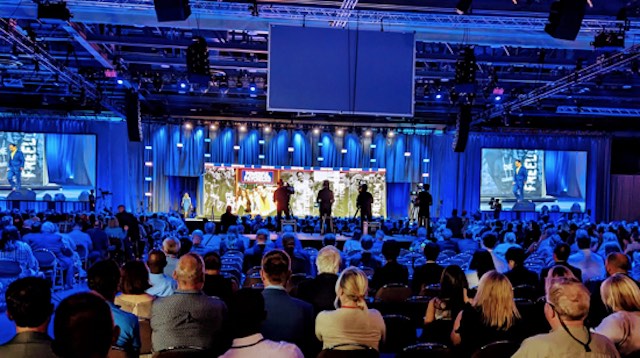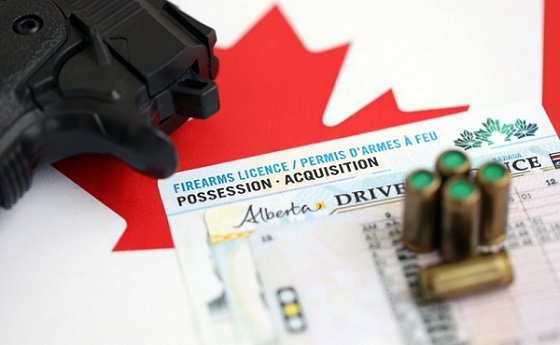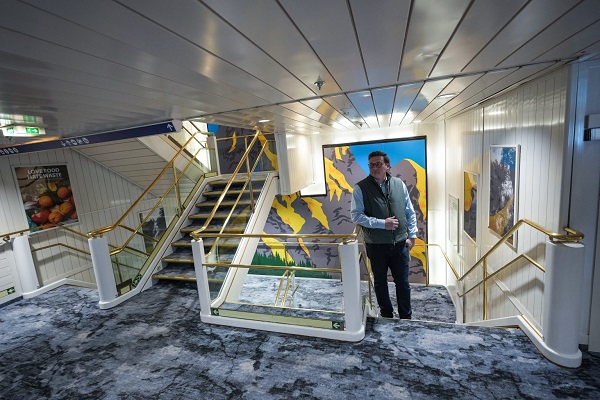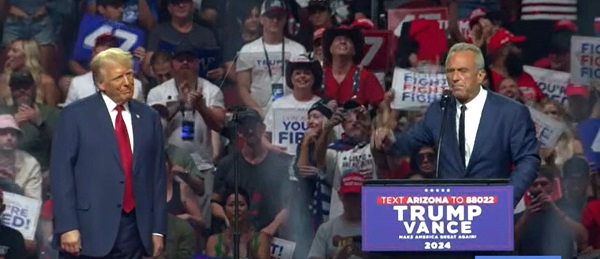Opinion
Grounded -The PM’s plane is transformed into a metaphor

|
|
I stopped by the Conservative Convention on Thursday night, just briefly. The mood (which I ascertained by asking several Conservative acquaintances “What’s the mood?”) was cautiously optimistic. The Conservatives I met — a random sample, skewed older because I haven’t met a new generation of Conservative activists — sounded pleased with Pierre Poilievre’s summer. But they also figure they’re getting a second look because voters have given the Liberals a hundred looks and they always see the same thing.
Later, word came from India that Justin Trudeau’s airplane had malfunctioned, stranding him, one hopes only briefly. It’s always a drag when a politician’s vehicle turns into a metaphor so obvious it begs to go right into the headline. As for the cause of the breakdown, I’m no mechanic, but I’m gonna bet $20 on “The gods decided to smite Trudeau for hubris.” Here’s what the PM tweeted or xeeted before things started falling off his ride home:
One can imagine the other world leaders’ glee whenever this guy shows up. “Oh, it’s Justin Trudeau, here to push for greater ambition!” Shall we peer into their briefing binders? Let’s look at Canada’s performance on every single issue Trudeau mentions, in order.
Paul Wells is a reader-supported publication. To receive new posts and support my work, consider becoming a free or paid subscriber.
On climate change, Canada ranks 58th of 63 jurisdictions in the global Climate Change Performance Index. The country page for Canada uses the words “very low” three times in the first two sentences.
On gender equality, the World Economic Forum (!) ranks Canada 30th behind a bunch of other G-20 members.
On global health, this article in Britain’s BMJ journal calls Canada “a high income country that frames itself as a global health leader yet became one of the most prominent hoarders of the limited global covid-19 vaccine supply.”
On inclusive growth, the United Nations Conference on Trade and Development has a composite indicator called the Inclusive Growth Index. Canada’s value is 64.1, just behind the United States (!) and Australia, further behind most of Europe, stomped by Norway at 76.9%.
On support for Ukraine, the German Kiel Institute think tank ranks Canadafifth in the world, and third as a share of GDP, for financial support; and 8th in the world, or 21st as a share of GDP, for military support.
Almost all of these results are easy enough to understand. A small number are quite honourable. But none reads to me as any kind of license to wander around, administering lessons to other countries. I just finished reading John Williams’ luminous 1965 novel about university life, Stoner. A minor character in the book mocks the lectures and his fellow students, and eventually stands unmasked as a poser who hasn’t done even the basic reading in his discipline. I found the character strangely familiar. You’d think that after nearly a decade in power, after the fiascos of the UN Security Council bid, the first India trip, the collegiate attempt to impress a schoolgirl with fake trees, the prime minister would have figured out that fewer and fewer people, at home or abroad, are persuaded by his talk.
But this is part of the Liberals’ problem, isn’t it. They still think their moves work. They keep announcing stuff — Digital adoption program! Growth fund! Investment tax credits! Indo-Pacific strategy! Special rapporteur! — and telling themselves Canadians would miss this stuff if it went away. Whereas it’s closer to the truth to say we can’t miss it because its effect was imperceptible when it showed up.
In a moment I’ve mentioned before because it fascinates me, the Liberals called their play a year ago, as soon as they knew they’d be facing Pierre Poilievre. “We are going to see two competing visions,” Randy Boissonault said in reply to Poilievre’s first Question Period question as the Conservative leader. The events of the parliamentary year would spontaneously construct a massive contrast ad. It was the oldest play in the book, first articulated by Pierre Trudeau’s staff 50 years ago: Don’t compare me to the almighty, compare me to the alternative. It doesn’t work as well if people decide they prefer the alternative. It really doesn’t work if the team running the play think it means, “We’re the almighty.”
Share
There may yet be years — two, anyway — before we get to vote in a general election. Obviously much can change. I’ve made it clear, just about every time I’ve written about specific Poilievre policies, that I’ve seen no reason to be optimistic that a change of government would guarantee any improvement in public administration. But what we’ve seen elsewhere — most spectacularly in provincial elections in Quebec and Ontario in 2018 — is that sometimes voters stop caring about that question. They have a simpler question: After a decade in power, does the government in place even notice large, obvious things?
I see the Liberal caucus will be in London, ON this week. Here’s a chance for them to practice noticing large, obvious things. MPs would do well to walk around the city’s downtown core after dark, east of Richmond St., between Dundas and York. If they travel in small groups they’ll probably be safe.
While they witness what a Canadian city looks like in 2023, they might remind themselves that their unofficial 2015 election slogan was “Better Is Always Possible.” And ask themselves how much trouble they’ll be in if voters still believe it.
Lately when I write about the Liberals I upset my Liberal subscribers and when I write about Conservatives I upset my Conservative subscribers. I know it can feel like shtick, but it reflects my conviction that the partisan joust, and the genuine feelings that underpin it, are easier to address than the wicked problems of a chaotic time. And therefore way too tempting to an entire generation of political leadership.
For the Liberals, the challenge has been obvious since 2019: Does Justin Trudeau learn? In 2015 he ran as a disruptor, a guy who had noticed large, obvious things — interest rates were low! Small deficits were more manageable than they had been in years ! — and was willing to be cheeky in ignoring the other parties’ orthodoxies. Stephen Harper and Tom Mulcair were reduced to sputtering outrage that the new kid was making so many cheeky promises on fighter procurement (whoops), electoral reform (never mind), admitting Syrian refugees, legalizing cannabis, and more.
Since about 2017, inevitably, the Trudeau government has undergone a transition that’s common when disruptors become incumbents. He is increasingly forced to defend the state of things, rather than announcing he’s come to change it. He’s changed positions from forward to goal. All his opponents need to do is notice the big, obvious things he seems unable to see. The biggest: It’s become punishingly difficult for too many Canadians to put a roof over their head.
The old Trudeau would have done big, surprising things to show he could see such a thing. The Trudeau who ejected every senator from the Liberal caucus and broke a decade’s taboo against deficit spending would shut down the failed Canada Infrastructure Bank this week and put the savings into a national crisis housing fund. Or, I don’t know, some damned thing.
But of course, the surprising Trudeau of 2015 hadn’t been prime minister yet, had he? This hints at a question a few Liberals are starting to ask themselves. Does he have any juice left in him for more than pieties? He might still have some fight in him, but does he still have the job in him?
He’s already been in the job for longer than Pearson and Diefenbaker were. His indispensable right hand has been chief of staff longer than anyone who ever held the job. They have, for years, already been noticeably eager to administer lessons to others. Would they view a Liberal election defeat as their failure — or ours?
Would a prime minister who views a G-20 summit as a learning opportunity for every country except Canada view an election defeat as anything but further proof that Canada never really deserved him anyway?
This article is from Paul Wells substack.
For the full experience, click to subscribe to Paul Wells.
Click here to support the work of Paul Wells by subscribing to substack
Opinion
Country music star Paul Brandt asks Parliament to toughen laws against child porn

From LifeSiteNews
Paul Brandt is calling on Parliament to exercise the notwithstanding clause of the Charter of Rights and Freedoms after a teen in Calgary made deepfake child porn from photos of schoolgirls.
Canadian country music star Paul Brandt is calling on Parliament to exercise the notwithstanding clause of the Charter of Rights and Freedoms in the wake of another horrifying case of a boy creating digital deepfake pornography of female classmates—child sexual abuse material (CSAEM).
A 17-year-old boy in Calgary, Alberta used AI to transform normal photographs of schoolgirls into child sexual abuse material and then uploaded them to social media. According to police, the teen is facing charges “including making, possessing, and distributing child sexual abuse and exploitation materials, along with criminal harassment.”
“The victims—teen girls from multiple high schools—are now in trauma counselling,” wrote Brandt in an X thread that has already been viewed nearly a million times. “Some may never feel safe at school again. Their images are forever weaponized. This isn’t ‘bullying.’ This is sexual violence enabled by technology and enabled by weak laws.”
“Under the law before October 31, 2025, this boy faced a mandatory 1-year jail sentence for making & distributing CSAEM, plus another possible 1-year for possession,” Brandt continued. “That floor sent a clear message: you do not get to sexually exploit children and walk away with probation…The Supreme Court struck down the 1-year mandatory minimum for possession of CSAEM because of a hypothetical 18-year-old who keeps a consensual sext from his 17-year-old girlfriend.”
RELATED: Canada’s Supreme Court goes soft on child pornography
This ruling, Brandt noted, means that many judges will let “young offenders” off light—and the social consequences of this will be transformative. “Imagine being one of those Calgary girls and hearing the boy who deepfaked you into porn might get… house arrest,” Brandt wrote. “Or a conditional discharge. Or NOTHING. Because a court 3,000 km away worried about a different, hypothetical 18-year-old’s love life.”
These “mandatory minimums,” Brandt stated, are essential. “They are the only way to tell every teenager with a phone and an AI app: If you turn a classmate into child sexual abuse material, your life changes too. You do not get to ruin hers and live yours without consequence. Without that certainty, we are teaching two generations the wrong lesson: Victims: ‘Your trauma is negotiable.’ Perpetrators: ‘Worst-case scenario is a stern talking-to.’”
Importantly, mandatory minimum sentences for these crimes were an important deterrent to sexually predatory behavior. “After mandatory minimums were introduced in 2015, self-reported teen sextortion and revenge-porn cases dropped,” Brandt wrote.
When the floor disappears, the behaviour comes roaring back—we’re already seeing it in the 54% surge in Alberta ICE files this year. The perpetrator is also a child. He needed a bright red line years ago—before he pressed “generate.” Clear, certain punishment protects him too: from becoming an adult predator, from a lifetime on the sex-offender registry, from potentially destroying his own future along with theirs.
Brandt called on Prime Minister Mark Carney’s Liberal government to invoke the notwithstanding clause and “restore the mandatory minimums for possession, making, and distribution of CSAEM,” and table a bill “with even stronger sentence if necessary. Brandt called on Canadians to sign his petition urging the government to take action “before the next classroom is violated.”
Paul Brandt launched an anti-sex trafficking organization in 2017 called #NotInMyCity, which focuses on raising awareness, advancing preventative strategies, mobilizing communities, and “facilitating transformational systems change.” The organization has assembled a vast army of corporate, political, and social allies over the past eight years.
LSN published a report in this space on December 3, detailing the growing crisis of AI-generated pornography via apps like “nudify,” which children and teens have used to digitally undress their classmates and produce CSAEM.
RELATED: AI is accelerating the porn crisis as kids create, consume explicit deepfake images of classmates
Alberta
Premier Smith: Canadians support agreement between Alberta and Ottawa and the major economic opportunities it could unlock for the benefit of all

From Energy Now
By Premier Danielle Smith
Get the Latest Canadian Focused Energy News Delivered to You! It’s FREE: Quick Sign-Up Here
If Canada wants to lead global energy security efforts, build out sovereign AI infrastructure, increase funding to social programs and national defence and expand trade to new markets, we must unleash the full potential of our vast natural resources and embrace our role as a global energy superpower.
The Alberta-Ottawa Energy agreement is the first step in accomplishing all of these critical objectives.
Recent polling shows that a majority of Canadians are supportive of this agreement and the major economic opportunities it could unlock for the benefit of all Canadians.
As a nation we must embrace two important realities: First, global demand for oil is increasing and second, Canada needs to generate more revenue to address its fiscal challenges.
Nations around the world — including Korea, Japan, India, Taiwan and China in Asia as well as various European nations — continue to ask for Canadian energy. We are perfectly positioned to meet those needs and lead global energy security efforts.
Our heavy oil is not only abundant, it’s responsibly developed, geopolitically stable and backed by decades of proven supply.
If we want to pay down our debt, increase funding to social programs and meet our NATO defence spending commitments, then we need to generate more revenue. And the best way to do so is to leverage our vast natural resources.
At today’s prices, Alberta’s proven oil and gas reserves represent trillions in value.
It’s not just a number; it’s a generational opportunity for Alberta and Canada to secure prosperity and invest in the future of our communities. But to unlock the full potential of this resource, we need the infrastructure to match our ambition.
There is one nation-building project that stands above all others in its ability to deliver economic benefits to Canada — a new bitumen pipeline to Asian markets.
The energy agreement signed on Nov. 27 includes a clear path to the construction of a one-million-plus barrel-per-day bitumen pipeline, with Indigenous co-ownership, that can ensure our province and country are no longer dependent on just one customer to buy our most valuable resource.
Indigenous co-ownership also provide millions in revenue to communities along the route of the project to the northwest coast, contributing toward long-lasting prosperity for their people.
The agreement also recognizes that we can increase oil and gas production while reducing our emissions.
The removal of the oil and gas emissions cap will allow our energy producers to grow and thrive again and the suspension of the federal net-zero power regulations in Alberta will open to doors to major AI data-centre investment.
It also means that Alberta will be a world leader in the development and implementation of emissions-reduction infrastructure — particularly in carbon capture utilization and storage.
The agreement will see Alberta work together with our federal partners and the Pathways companies to commence and complete the world’s largest carbon capture, utilization and storage infrastructure project.
This would make Alberta heavy oil the lowest intensity barrel on the market and displace millions of barrels of heavier-emitting fuels around the globe.
We’re sending a clear message to investors across the world: Alberta and Canada are leaders, not just in oil and gas, but in the innovation and technologies that are cutting per barrel emissions even as we ramp up production.
Where we are going — and where we intend to go with more frequency — is east, west, north and south, across oceans and around the globe. We have the energy other countries need, and will continue to need, for decades to come.
However, this agreement is just the first step in this journey. There is much hard work ahead of us. Trust must be built and earned in this partnership as we move through the next steps of this process.
But it’s very encouraging that Prime Minister Mark Carney has made it clear he is willing to work with Alberta’s government to accomplish our shared goal of making Canada an energy superpower.
That is something we have not seen from a Canadian prime minister in more than a decade.
Together, in good faith, Alberta and Ottawa have taken the first step towards making Canada a global energy superpower for benefit of all Canadians.
Danielle Smith is the Premier of Alberta
-

 Censorship Industrial Complex1 day ago
Censorship Industrial Complex1 day agoCanadian bishops condemn Liberal ‘hate speech’ proposal that could criminalize quoting Scripture
-

 National2 days ago
National2 days agoAlberta will use provincial laws to stop Canadian gov’t from trying to confiscate legal firearms
-

 COVID-192 days ago
COVID-192 days agoCanadian legislator introduces bill to establish ‘Freedom Convoy Recognition Day’ as a holiday
-

 Energy2 days ago
Energy2 days agoA look inside the ‘floatel’ housing B.C.’s LNG workforce
-

 Daily Caller18 hours ago
Daily Caller18 hours agoTrump Orders Review Of Why U.S. Childhood Vaccination Schedule Has More Shots Than Peer Countries
-

 Business2 days ago
Business2 days agoUS Energy Secretary says price of energy determined by politicians and policies
-

 Economy1 day ago
Economy1 day agoWhat the Data Shows About the New Canada-Alberta Pipeline Opportunity
-

 illegal immigration1 day ago
illegal immigration1 day agoWhile Trump has southern border secure, hundreds of thousands of illegal immigrants still flooding in from Canada












